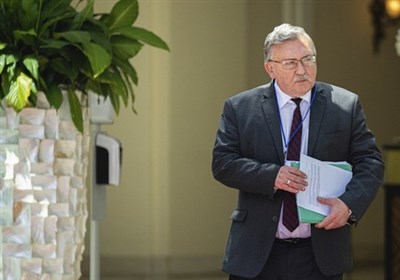Spain Votes in Fourth General Election in Four Years
TEHRAN (Tasnim) – Spain is voting in its fourth general election in four years on Sunday, after a campaign overshadowed by the crisis in Catalonia and the rise of the hard right.
Some 37m Spaniards — out of a total population of 47m in the country — will have the right to vote at almost 60,000 polling stations around the country. They will be choosing the entire 350 seat chamber of deputies and the 208 member Senate.
“There are 100 seats that depend on very narrow margins of votes,” said Ignacio Torreblanca of the European Council on Foreign Relations. “Whether parties have a few percentage points more or less — particularly around the 12 per cent level or, for the party that comes first, around 30 per cent — can have a brutal impact in the distribution of seats.”
Voting will take place between 9am and 8pm local time, with first results due out an hour after the end of polling in mainland Spain, because of a time difference with the Canary Islands. More complete results should be due by around 10:30pm.
The election was triggered by the failure of Pedro Sánchez, caretaker prime minister, to win parliament’s backing to form a government.
Opinion polls suggest his Socialists will retain first place, although on a lower share of vote than the 29 per cent they scored in the last election, in April.
“It’s hard to see how this election gets us out of the hole we are in,” said Pablo Simon, professor of politics at Madrid’s Carlos III university. “It could well produce a shortlived and very weak government”, The Financial Times reported.
The surveys also indicate that rightwing parties have benefited from a backlash in much of Spain to pro-independence protests in Catalonia that initially sometimes veered into violence.
In his final election rally, in Barcelona on Friday night, Sanchez called for support for “a strong government to stop the far-right and the other form of extremism, which is separatism”.
While the prime minister has sought to champion a “firm, proportionate” response to the protests in Catalonia — which were sparked off by jail sentences for nine pro-independence Catalan politicians — the parties to his right have called for tougher action.
The far-right Vox party, which has called for a state of emergency in Catalonia, involving the suspension of basic rights, could mark up the most spectacular result. Polls have suggested it could increase its support from 10 per cent in April to 12-15 per cent, making it the third biggest force in parliament.
“Sanchez has made a basic error that is very hard to understand in apparently not understanding that the verdicts in the Catalan case would benefit the right,” said Torreblanca.
“The big question for Vox is how many working class votes it gets,” he added, pointing out that much of the far-right group’s initial support has been among upper income groups.
Santiago Abascal, the Vox leader, focused his last pre-election address on a request for the support of traditional leftwing voters who felt “abandoned” by the Socialists. He added that the other parties were “in a panic” about the rise of his far-right party.
Meanwhile the centre-right People’s party is hoping to mount a convincing comeback from its results in April, when it barely held on to second place with 17 per cent of the vote, but the pro-market Ciudadanos, which almost overtook the PP in April, is braced for a collapse in its support.
In an indication of Vox’s growing influence on the debate, some politicians from both the PP and Ciudadanos have signed up to the far-right party call to outlaw separatist Catalan parties.
And in his own last appeal to the electorate, Pablo Casado, the PP leader, spoke of his “affectionate relationship” with Abascal of Vox and with Albert Rivera, the Ciudadanos leader, while asking for the support of their voters to avoid the break-up of Spain. “Only one team or another can win,” he said. “Territorial division or the PP.”






